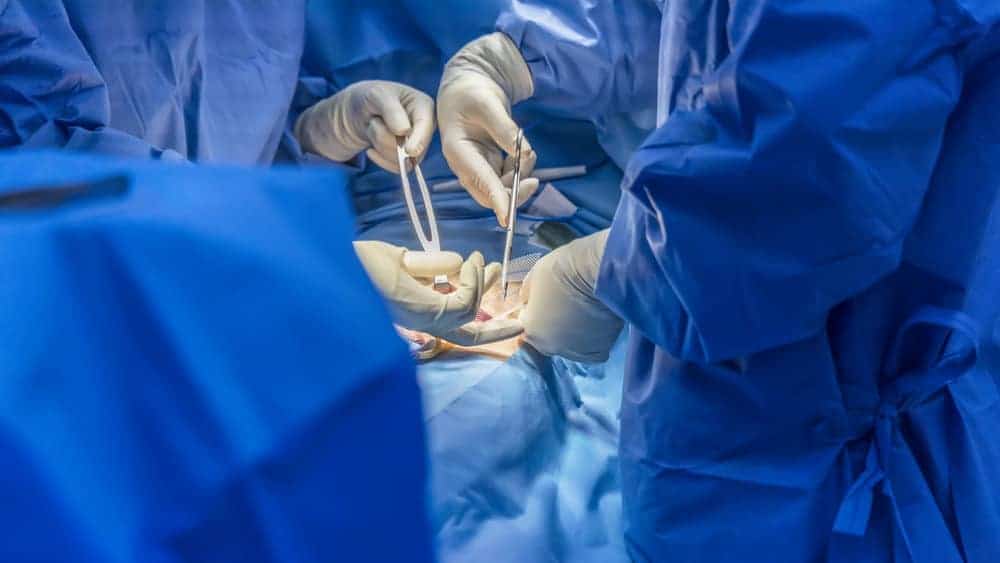Hernia mesh lawsuits have become a significant topic of discussion in recent years due to the rising number of patients experiencing complications after undergoing hernia repair surgeries. Many of these complications can be traced back to using defective or substandard hernia mesh products, leading to lawsuits against major manufacturers like Ethicon, Bard Davol, Atrium Medical Corp., and Covidien, now Medtronic.
As more people file hernia mesh lawsuits in 2024, there is a growing interest in understanding the average payout such cases may receive. While providing a concrete number is challenging due to the circumstances surrounding each case, previous settlements have ranged from $40,000 to $60,000 per plaintiff. These lawsuit payouts depend on factors such as the extent of the injuries, the duration of the complications, and the manufacturer’s conduct.
Multidistrict litigations (MDLs) have been formed to consolidate and manage these lawsuits more efficiently. As of 2023, there were over 20,000 combined hernia mesh lawsuits across the United States. As these cases progress and more settlements are reached, a clearer understanding of the average payout for hernia mesh lawsuits may develop, guiding those who seek legal recourse for their suffering.
Understanding Hernia Mesh Lawsuits
Causes of Hernia Mesh Complications
Hernia mesh complications can occur for various reasons, including design defects, inadequate instructions for use, and improper surgical implantation. Manufacturers such as Covidien (now Medtronic) have produced hernia mesh products like Parietex, ProGrip, SurgiPro, and Symbotex, which have sometimes been associated with complications.
Common Injuries and Complications
Hernia mesh lawsuits often result from injuries and complications linked to defective hernia mesh products. Some common complications include:
- Infection: Bacterial infections can develop at the surgical site, often leading to complications such as abscesses, wound dehiscence, and even sepsis.
- Chronic pain: Patients may experience lasting pain at the hernia repair site, which can be debilitating and negatively impact their quality of life.
- Mesh migration: The hernia mesh might move or migrate from its intended location, potentially causing complications such as adhesion to internal organs, tissue damage, or bowel obstruction.
- Mesh erosion: The mesh may erode or dissolve, causing surrounding tissue damage and potentially requiring additional surgery to repair.
- Recurrence of hernia: The hernia may return despite using a mesh device due to complications or improper placement.
Defective Hernia Mesh Products
Product liability claims for hernia mesh lawsuits often stem from allegations that the mesh was defectively designed, manufactured, or marketed. Defective hernia mesh products could have the following issues:
- Design defects: The mesh may have inherent flaws in its design, leading to complications when implanted in patients.
- Manufacturing defects: During manufacturing, errors may produce harmful or ineffective mesh devices.
- Inadequate warnings or instructions: Manufacturers may fail to provide adequate warnings or instructions for surgeons, leading to improper implantation and the potential for complications.
By understanding the varying causes of hernia mesh complications, the common injuries and complications, and the defective hernia mesh products that may be involved, those affected by hernia mesh complications can better comprehend the grounds for their hernia mesh lawsuits.
Hernia Mesh Manufacturers and Their Role
Major Manufacturers
Hernia mesh is a medical device that supports weakened or damaged tissue during hernia repair surgery. Several major manufacturers produce hernia mesh products, including:
- C.R. Bard
- Ethicon (a subsidiary of Johnson & Johnson)
- Atrium Medical Corp (now part of Getinge)
- Endo International
- Covidien (now part of Medtronic)
- Boston Scientific
Each manufacturer may create multiple types of hernia mesh products, often with distinct characteristics and materials. For instance, Covidien (now Medtronic) is known for its Parietex, ProGrip, SurgiPro, and Symbotex hernia mesh products.
Recalls and FDA Actions
Manufacturers are responsible for creating and distributing safe and effective hernia mesh products. However, certain products have been subject to recalls, either voluntarily or mandated by the Food and Drug Administration (FDA).
Various factors, including reports of complications, faulty manufacturing processes, or improper labeling, can trigger hernia mesh recalls. When a recall occurs, the manufacturer must address the issue, provide necessary information to patients and healthcare providers, and take corrective action.
The FDA plays a crucial role in regulating hernia mesh manufacturers by monitoring, investigating, and taking action in cases where a hernia mesh product risks patient safety. Additionally, the FDA may issue safety communications or require post-market surveillance studies to better understand the safety and effectiveness of a particular hernia mesh product.
An example of a recall includes Atrium Medical Corp’s voluntary recall of their C-QUR mesh in 2013. The recall was initiated due to a potential packaging issue that could compromise sterility.
Understanding the role of hernia mesh manufacturers and the importance of recalls and FDA actions reveals that these entities play a critical role in ensuring patient safety and effectiveness.
Legal Aspects of Hernia Mesh Lawsuits
Types of Damages and Compensation
In hernia mesh lawsuits, plaintiffs typically seek compensation for various damages. These may include:
- Medical expenses: Costs associated with past and future surgeries, treatments, and hospital stays related to the hernia mesh complications
- Lost wages: Compensation for any lost income due to inability to work or time spent recovering from surgeries and treatments
- Pain and suffering: Monetary compensation for physical pain and emotional distress caused by the hernia mesh complications
- Loss of consortium: Compensation for the negative impact the complications have had on the plaintiff’s relationships
Punitive Damages and Negligence
In some hernia mesh cases, plaintiffs may also seek punitive damages. Punitive damages are awarded to punish the defendant for particularly egregious behavior and to deter others from engaging in similar conduct. To be awarded punitive damages, the plaintiff must demonstrate that the hernia mesh manufacturer acted with gross negligence or reckless disregard for their product users’ safety.
Multidistrict Litigation and Mass Torts
Many hernia mesh lawsuits are part of multidistrict litigation (MDL) or mass tort cases. MDLs consolidate similar lawsuits from different jurisdictions into a single federal court, streamlining the pretrial proceedings and increasing judicial efficiency. Some notable hernia mesh MDLs involve manufacturers like Bard, Ethicon, Covidien, and Atrium.
Covidien (now Medtronic) has produced hernia mesh products such as Parietex, ProGrip, Surgipro, and Symbotex, which have been the subject of various lawsuits. In some instances, plaintiffs argue that the manufacturers were aware of the product defects but continued to market and sell them, harming patients.
Statute of Limitations
Each state has its statute of limitations for filing a hernia mesh lawsuit. This time limit dictates how long a plaintiff has after the injury occurred or was discovered to initiate legal action. In many states, the statute of limitations for product liability cases, such as hernia mesh lawsuits, is two to three years. Plaintiffs must consult with a qualified attorney to ensure they file their claims within the appropriate time frame, as failure to do so may result in losing their right to seek compensation.
Finding a Hernia Mesh Lawyer
Victims of defective hernia mesh products may experience severe complications or injuries, and hiring a hernia mesh lawyer can play a crucial role in securing compensation for the damages suffered. These specialized lawyers have experience in personal injury cases, specifically those related to hernia mesh lawsuits. They can guide their clients through the complex legal process, ensuring they are informed and adequately represented.
Legal representation is essential in these cases since it can significantly impact the case outcome. Companies like Covidien, now Medtronic, with hernia mesh products such as Parietex, ProGrip, Surgipro, and Symbotex, have considerable financial resources and legal teams to defend themselves. A hernia mesh lawyer can level the playing field and increase a victim’s chances of reaching a favorable settlement or verdict.
Finding the Right Lawyer
To find the right hernia mesh lawyer for your case, consider the following factors:
- Experience: Look for a personal injury attorney with specific experience handling hernia mesh lawsuits. They should know the products, manufacturers, and associated litigation procedures.
- Track Record: A successful hernia mesh lawyer should have a record of positive case outcomes, either through settlements or verdicts. Research their success rate and the compensation amounts they have helped clients recover.
- Accessibility: Your lawyer should be readily available for consultation. Clear communication between you and your lawyer is essential for a successful case outcome.
- Testimonials: Speak to former clients and read reviews of the lawyer to understand their reputation and expertise better.
What to Expect from Your Lawyer
Here’s what you can expect from a qualified hernia mesh lawyer:
- Case Evaluation: Your lawyer will assess the merits of your case, the extent of the injuries sustained, and the potential compensation amount you may receive.
- Guidance: The lawyer will walk you through the legal process, informing you of your options, case progress, and possible outcomes.
- Negotiation: An experienced hernia mesh lawyer will negotiate with the defendants to reach a fair settlement. They will advise you on whether a settlement offer is appropriate or whether proceeding to trial is the best course of action.
- Representation: If a settlement cannot be reached, your hernia mesh lawyer will represent you in court, presenting your case and advocating for your best interests.
Finding and hiring the right hernia mesh lawyer is critical for victims of defective hernia mesh products. By evaluating relevant factors such as experience, track record, accessibility, and client testimonials, you can make an informed choice and increase your chances of reaching a favorable settlement or verdict.

Factors Affecting Payouts in Hernia Mesh Lawsuits
Type of Hernia Mesh
The specific type of hernia mesh used plays a role in determining the settlement amount, as different meshes vary in quality, potential complications, and manufacturer reputation. For example, Covidien (now Medtronic) hernia mesh products such as Parietex, ProGrip, Surgipro, and Symbotex may influence the settlement amount differently.
The severity of Injuries and Complications
A key factor affecting the payout of a hernia mesh lawsuit is the severity of the plaintiff’s injuries and complications. Complications can include infection, excessive scar tissue, inflammation, nerve damage, mesh migration, and perforation. Cases with more severe consequences or long-lasting effects are typically associated with higher settlement amounts.
Age and Quality of Life
The age and general health of the plaintiff can significantly impact the settlement amount, as recovery and ongoing complications can be more substantial in older or less healthy individuals. The overall effect on the quality of life, such as the ability to enjoy daily activities, will also play a crucial role in determining the settlement.
Past and Future Medical Expenses
One factor influencing the hernia mesh lawsuit payout is the amount of past and future medical expenses incurred by the plaintiff. These can include hospital expenses, surgeries to treat complications, medication, and other ongoing medical costs. Higher medical bills and longer treatment durations are typically associated with larger settlement amounts.
Impact on Earning Capacity and Lost Wages
The monetary compensation in a hernia mesh lawsuit may be affected by the complications’ impact on the plaintiff’s earning capacity and lost wages. This includes the current loss of income due to time off from work and any potential future losses resulting from the inability to maintain the same employment or career growth level. Higher-earning plaintiffs with significant lost wages or impaired earning capacity are likelier to receive a larger settlement amount.
Example Cases and Settlements
Bellwether Trials and Results
Bellwether trials are often used to determine the potential settlement value for a group of similar cases, such as hernia mesh lawsuit settlements. These initial trial results can be benchmarks for future settlements or trial verdicts.
A notable hernia mesh lawsuit involved Covidien (now Medtronic), which faced legal action over its hernia mesh products, including Parietex, ProGrip, SurgiPro, and Symbotex. Many cases are still pending or settled privately with undisclosed settlement amounts, making it difficult to provide specific information on average payouts.
Recent Settlements and Trial Verdicts
Here are some recent hernia mesh lawsuit settlements and trial verdicts:
- Settlement Average: Hernia mesh lawyers estimate hernia mesh settlement awards may be anywhere from $65,000 to $80,000, but they may be as high as $1 million.
- Previous Lawsuits: Average hernia mesh settlements from previous lawsuits awarded each plaintiff $40,000 to $60,000.
- In the Bard Hernia Mesh MDL, there are over 24,000 pending cases.
These examples should provide insight into recent years’ average payouts for hernia mesh lawsuits. Please note that individual settlement amounts can vary greatly depending on the specifics of each case, such as the severity of the injuries sustained, the manufacturer, and product defects.



